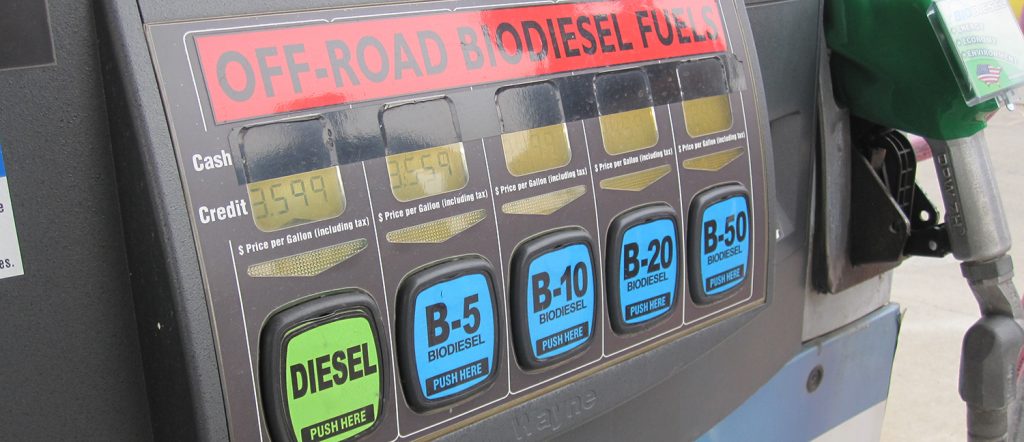Minnesota’s 2019 legislative session went down to the wire, but when the dust settled, the Minnesota Soybean Growers Association (MSGA) emerged with achievements on several policy priorities.
“By nearly every measure, lawmakers and Gov. Walz’s administration did right by Minnesota farmers in the 2019 session,” says MSGA President Michael Petefish, who is entering his final month at the helm. “During a difficult period in agriculture, we were encouraged to see both parties work together to pass legislation that can prove helpful to our growers.”
On May 19, Gov. Walz and Minnesota’s divided legislative body agreed to a $48 billion 2020-21 bipartisan budget deal on May 19, hours before a constitutional deadline for adjournment of the 2019 Regular Legislative Session of May 20. But that didn’t leave enough time for lawmakers to pass the 10 compromise finance bills before the Legislature had to adjourn at midnight Monday, necessitating a special session.
Gov. Walz called legislators back for a special session on Friday, May 24, giving legislators time to complete their work establishing the 2020-21 biennial budget. Lawmakers worked through the night passing the required budget bills and finished their budgetary requirements shortly after dawn Saturday morning.

During the special session, in a landmark triumph for MSGA, lawmakers approved $5 million in funding for a soybean crush and biodiesel facility as part of the Soy Innovation Campus at the University of Minnesota Crookston. The funds will become available during the second half of the biennium in July 2020.
“The Soy Innovation Campus is a dream come true for farmers in northwest Minnesota,” says MSGA Director Mike Skaug, who farms near Crookston in Polk County. “We’ve always viewed this facility as a game-changer for our region’s economy, and we’re grateful the legislature and Walz administration see the same potential that we do.”
But the list of MSGA legislative successes in 2019 didn’t stop there. Farmer leaders and MSGA’s crack lobbying team also helped notch wins throughout the budget compromise.
Increased funding for rural mental health
For the past several years, MSGA has worked to raise awareness and increase resources for rural mental health in Minnesota. Entering 2019, Ted Matthews was the only rural mental health professional to cover the entire state. As part of the budget, the legislature approved $1.3 million for mental health counseling and more advocates throughout Minnesota.
Tax conformity
The omnibus tax bill mostly accomplishes the stated goal of bringing Minnesota tax policy into conformity with the federal Tax Cuts and Jobs Act that went into effect in late 2017. The final agreement has a “zero target” for fiscal years 2020 and 2021, meaning no new tax increases are contained in the bill. For the first time in nearly 20 years, Minnesota’s second-tier income bracket will see their taxes lowered from 7.05 percent to 6.8 percent.
Provisions of Interest also include:
- Lowers the 2 percent health care provider to a lower rate of 1.8 percent
- Clarifies agricultural homestead classification
- Federal Conformity Section 179
- Gradually increases the school building bond agricultural credit from 40 percent to 70 percent
MSGA also saw a host of priorities that made their way into the budget, including:
- Extending AFREC for five years;
- $40 million for rural broadband
- Funding for control and eradication of Palmer amaranth;
- Clarifying agricultural homestead classification;
- Exempting truck washes from swine basins;
- Modifying and improving the Beginning Farmer Tax Credit;
- No further pesticide regulations.
Compromise was a running theme throughout the waning days and hours of the budget negotiations. Neither party emerged from the session with 100 percent satisfaction, and MSGA was no different.
“That’s how the legislature works. You don’t always get everything you want,” says MSGA lobbyist Cory Bennett. “You just look to find that sweet spot. Sometimes you have to compromise and that’s fine. Overall, it was a very successful session.”
Moving forward, MSGA will continue engaging with legislators and advocating for improved health care options, more funding for rural transportation and infrastructure, protecting the Renewable Fuel Standard, along with seeking a swift resolution to the trade war at the federal level.
“We did all we could and left it all out on the field in St. Paul,” MSGA Executive Director Joe Smentek says. “We’re going to talk to our board and re-prioritize heading into another big election year in 2020. But at this moment, after a long session, we’re going to revel in the victories we achieved for soybean farmers.”





